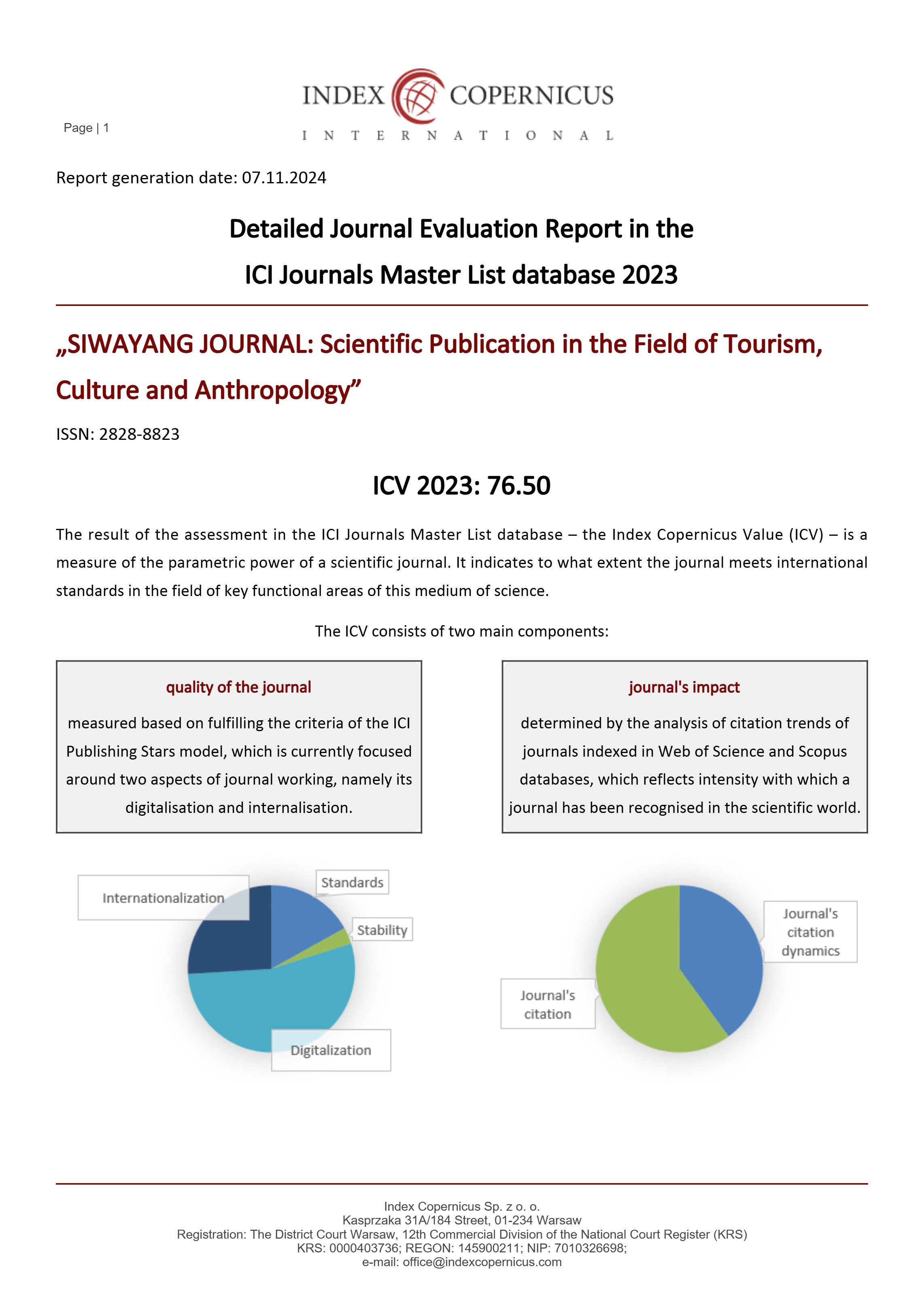AI Policy
AI Policy for the SIWAYANG JOURNAL
1. Scope and Purpose
This policy governs the use of artificial intelligence (AI) tools and technologies in the research, writing, review, and editorial processes for articles submitted to SIWAYANG JOURNAL. It aims to maintain academic integrity, ensure transparency, and promote ethical practices in scholarly communication. As AI tools become increasingly integral to academic work, this policy provides a framework to address their responsible use, ensuring that the standards of scholarly excellence and integrity are upheld. This policy will be updated periodically to reflect advancements in AI technologies and their implications for academic publishing.
2. Guidelines for Authors
2.1. Use of AI in Research
- Authors are permitted to use AI tools for data analysis, simulation, or other research purposes, provided the tools are explicitly mentioned in the methodology section of the manuscript.
- The limitations, assumptions, and potential biases of the AI tools must be acknowledged and discussed to ensure transparency and reproducibility of the research findings.
2.2. Use of AI in Writing
- Authors must disclose any use of AI in drafting, editing, or proofreading the manuscript. This includes tools such as ChatGPT, Grammarly, DeepL, or similar platforms.
- AI tools should not be used as a substitute for the authors’ intellectual contributions. Authors are responsible for ensuring the accuracy and originality of the manuscript content.
- AI-generated content must be explicitly reviewed, validated, and contextualised by the authors.
2.3. Authorship and AI
- AI systems cannot be credited as authors under any circumstances. Authorship is reserved for individuals who have made substantial intellectual contributions to the research and manuscript preparation.
- Authors are responsible for all aspects of the manuscript, including the portions where AI tools were utilised.
2.4. Ethical Considerations
- Authors must ensure that the use of AI does not violate ethical standards, such as data privacy, informed consent, or institutional research ethics guidelines.
- AI tools must not be used to fabricate, falsify, or manipulate data. Any breach of these principles will be treated as research misconduct.
2.5. Referencing AI-Generated Texts
- If AI tools such as ChatGPT or others are used to generate text or assist in writing, their contributions must be explicitly cited in both the manuscript and the references section.
- The following format is recommended for citing AI-generated texts:
APA Style:
OpenAI. (Year). ChatGPT (Version). Retrieved from website [Provide the date of access as well].
3. Guidelines for Reviewers
3.1. Use of AI in Peer Review
- Reviewers may use AI tools for auxiliary tasks such as grammar checking or summarisation, but not for forming critical evaluations or recommendations regarding the manuscript.
- Any use of AI in the review process must be disclosed to the editorial team to ensure transparency.
3.2. Responsibilities and Human Oversight
- The peer review process must remain a human-led activity. AI tools can assist but must not replace the reviewer’s intellectual judgment and expertise.
- Reviewers are encouraged to exercise caution when using AI tools, ensuring that their evaluations are accurate and unbiased.
4. Guidelines for Editors
4.1. AI-Assisted Editorial Processes
- Editors may use AI tools for non-decisional tasks, such as plagiarism detection, grammar checking, or workflow management, to enhance efficiency and accuracy.
- Decisions regarding manuscript acceptance, rejection, or revision must remain the sole responsibility of human editors.
4.2. Disclosure and Transparency
- The editorial team will disclose any significant use of AI tools during the editorial process to ensure accountability and trust.
5. Transparency and Disclosure
All stakeholders (authors, reviewers, and editors) must disclose the use of AI tools in their respective roles. This includes the type of AI tool used, the purpose of its use, and the extent of its influence on the research or editorial process.
Non-disclosure of significant AI usage will be treated as a violation of ethical standards and may result in corrective measures, including manuscript rejection, retraction of published articles, or removal from reviewer or editorial roles.
6. Integrity and Accountability
The journal reserves the right to:
- Request detailed explanations or evidence regarding the use of AI tools in any aspect of the manuscript or review process.
- Conduct investigations and take appropriate corrective actions in cases of undisclosed or unethical AI use.
- Retract published articles where AI misuse or misrepresentation is discovered post-publication.
7. Continuous Review
This policy will be periodically reviewed and updated to align with evolving AI technologies and their implications for academic publishing. Feedback from stakeholders is encouraged to refine and improve the policy over time.






